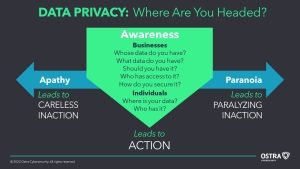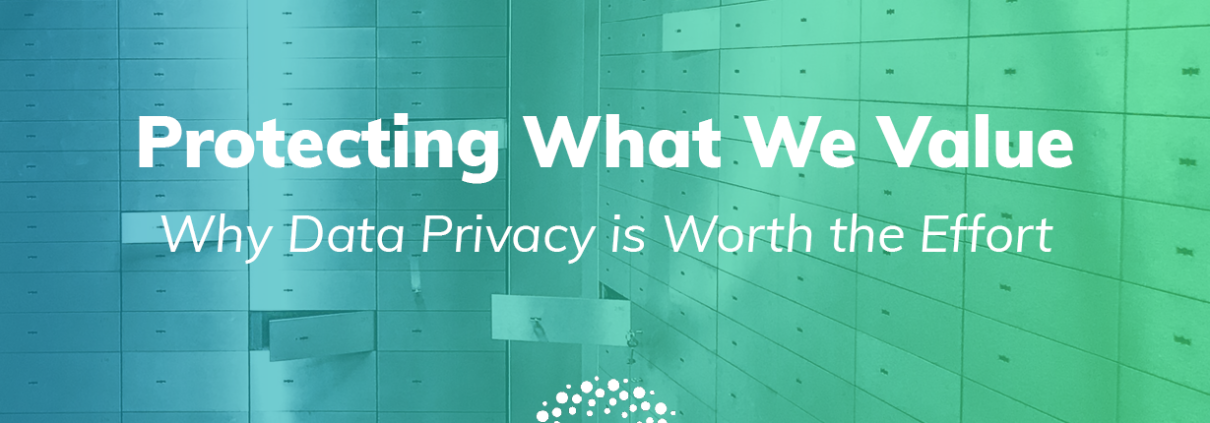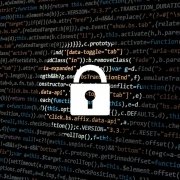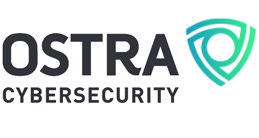Protecting What We Value: Why Data Privacy Is Worth the Effort
For anyone who participates in today’s digital economy, sharing information across multiple devices, apps, websites and software programs has become standard business practice and part of our daily routines. Many assume it is safe to repeatedly upload documents to file-sharing sites, collect details about customers via email, utilize customer service chats, process credit card payments online, or engage with third-party services. But how many of us take the time to learn more about the data collection process—or verify how this information will be kept confidential in the future?
Data Privacy Week
Data Privacy Week is an annual campaign and global initiative that spreads awareness about data privacy and educate individuals on how to secure their personal information. As a proud Data Privacy Champion, Ostra recognizes and supports the principle that all organizations share the responsibility of being conscientious stewards of personal information.
Ostra’s history and team culture reveals our passion for data privacy; we were founded on the belief that all businesses and individuals have a fundamental right to data privacy and security, no matter the size of their organization. Our team remains engaged in educating businesses about how to manage and secure their own data and systems, as well as taking steps to protect the data of clients or third-party vendors they interact with.
Why Is Data Valuable?
The truth is that data is a valuable asset because all online activity generates a digital trail that reveals behaviors, interests, purchasing habits, and more. For example, a weight loss app can track things such as the user’s age, weight, blood pressure or activity levels. Auto insurance providers may offer a rate discount if users install an app that shows their driving habits, daily routes, and phone usage while driving. YouTube, TikTok, and other social media apps keep an eye on the videos and ads that users click on, so they can place similar content in their feeds.
SDG Group, a global management consulting firm, explained that the “highly reusable” nature of data is one of the reasons why it is such a valuable asset for businesses:
“Generated once, it can be reused multiple times for a variety of uses: information analysis by business analysts, analytical models, etc.” (Source: sdggroup.com)
Of course, data isn’t always used for nefarious purposes. Most business use data analytics to help them reach more customers, and that’s not in itself a negative thing. For example, this HubSpot article asserts that there are four main benefits of big data for large and small businesses: solving problems, increasing revenue, cutting costs, and improving customer experiences.
But unfortunately, cybercriminals can use an individual’s online details to create a digital profile with the end goal of identity theft. And at the corporate level, all it takes is one weak password to give hackers a foothold that could result in a ransomware attack on the larger organization or its customers.
Take Proactive Steps
In his 2022 Data Privacy Week blog, Ostra Founder Michael Kennedy unpacked the idea that data privacy shouldn’t be considered an all-or-nothing pursuit. Although it can be tempting to become stuck in either apathy or paranoia, both of these extremes can actually result in inaction—which doesn’t help anyone. The best way forward is simple awareness, which leads to action steps. Read the full article here.

Three Tips for Managing Data Privacy
Below is a summary of simple tips, provided by the National Cybersecurity Alliance, to help you manage your data privacy:
1. Know the Tradeoff Between Privacy and Convenience
Anytime you download a new app, open a new online account, or join a new social media platform, you may be asked for access to your personal information before you can even use it! This data might include your geographic location, contacts, and photos.
This personal information about you is tremendously valuable to businesses – so you should think about whether the service you get in return is worth the data you must hand over, even if the service is free.
Make informed decisions about sharing your data with businesses or services:
- Is the service, app, or game worth the amount or type of personal data they want in return?
- Can you control your data privacy and still use the service?
- Is the data requested even relevant for the app or service (that is, “why does a Solitaire game need to know all my contacts”)?
- If you haven’t used an app, service, or account in several months, is it worth keeping around, knowing that it might be collecting and sharing your data?
2. Adjust Settings to Your Comfort Level
Check the privacy and security settings for every app, account or device that you use. These should be easy to find in a Settings section and should only take a few moments to change. Set them to your comfort level for personal information sharing; generally, it’s wise to lean on the side of sharing less data, not more.
You don’t have to do this for every account at once. Start small and, over time, you’ll make a habit of adjusting all of your settings to your comfort. The National Cybersecurity Alliance has in-depth, free resources like the Manage Your Privacy Settings page to help you check the settings of social media accounts, retail stores, apps and more.
3. Protect Your Data
Data privacy and data security go hand-in-hand. Along with managing your data privacy settings, follow some simple cybersecurity tips to keep your data safe. The National Cybersecurity Alliance recommends following these “Core 4” tips:
- Create long (at least 12 characters), unique passwords for each account and device. Use a password manager to store each password – maintaining dozens of passwords securely is now easier than ever.
- Turn on multifactor authentication (MFA) wherever it is permitted – this keeps your data safe even if your password is compromised.
- Turn on automatic device, software, and browser updates, or make sure you install updates as soon as they are available.
- Learn how to identify phishing messages, which can be sent as emails, texts, or direct messages.
For more information about Data Privacy Week, visit https://staysafeonline.org/data-privacy-week/
Ready to learn how Ostra can help you safeguard your most valuable asset? Contact our Trusted Cybersecurity Team to start an honest, down-to-earth conversation about data privacy.
Michael Kennedy is the founder of Ostra Cybersecurity, a multi-layered and fully managed Security as a Service. Recognized as a cybersecurity industry trailblazer, he is a dynamic leader, speaker, and fierce advocate for data privacy.




![IMG_1246[629]](https://www.ostra.net/wp-content/uploads/2020/10/IMG_1246629-180x180.jpg)





